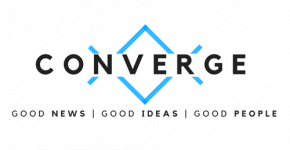The payroll landscape is becoming increasingly complex and challenging. The main cause of this is the rise of globalization and the rapid advancement of digital technology. Companies that used to handle payroll solely within one country now face the responsibility of coordinating this function across multiple regions.
This often involves navigating intricate legislation, understanding diverse cultural nuances, and dealing with a range of currencies. In such circumstances, a well-integrated global payroll system can completely transform the way businesses oversee their international operations.
Invest in technology
The significance of technology in global payroll management cannot be overstated. Having dependable technology is crucial given the complexities involved in processing payroll across multiple countries. Each of them usually has distinct tax laws, currencies, and regulatory frameworks.
Advanced software streamlines repetitive tasks, mitigates the risk of errors, and enhances accuracy. It is important to seek a solution that effectively handles diverse currencies and tax requirements while providing real-time visibility into your worldwide payroll data. Scalable solutions will support your company’s growth and expansion into new markets.
Furthermore, investing in a system that prioritizes data security is essential to protect sensitive employee information. In the era of increasing cyber threats, a secure payroll solution is not just a luxury but a necessity.
Understand your organization’s needs and objectives
Finding out your company’s specific requirements and goals is an important first step in implementing a successful global payroll strategy. This entails a detailed evaluation of your present payroll procedures and the identification of potential improvement areas.
Consider the number of nations your company operates in, the size of your current and future staff, and the type of your industry. These elements have a big impact on your payroll needs. It’s important to take into account any particular legal or compliance issues you may have. Having the correct payroll solution can help you with these issues as well.
This stage establishes the foundation for the whole implementation process. It also ensures that the best global payroll solutions are selected to support the expansion and success of your firm. With a thorough awareness of these specifics, you can successfully modify your implementation plan to meet your objectives.
Assemble a dedicated implementation team
Implementing a global payroll system is a demanding task. It requires cross-functional cooperation. That’s why it’s important to establish a dedicated team to oversee the implementation process.
Representatives from the HR, financial, IT, and legal departments should be included in this team. They bring diverse perspectives to the table. These team members need to be well-versed in the existing payroll procedures and have a clear understanding of the objectives of the new system. To maintain open lines of communication, monitor progress, and address any issues that may arise during implementation. It’s recommended that meetings are scheduled on a regular basis.
Remember, success in this endeavor relies on the collective effort of a team. With a committed, engaged, and knowledgeable team, the implementation of your new payroll system will be more successful. This will lead to increased overall profitability for your business.
Prioritize compliance
Compliance is a key component of international payroll administration. Maintaining compliance can be quite difficult. Different countries usually have very varied tax laws, reporting requirements, and labor rules.
However, this procedure may be made much simpler. The key is having an effective global payroll solution. Make compliance a top priority while organizing your implementation strategy. Make sure the system you select has strong features, such as precise tax computations, automated regulatory updates, and thorough reporting capabilities. This will help you conform to numerous compliance requirements.
Prioritizing compliance during implementation puts your business in conformity with the law and protects you from future legal problems and heavy fines.
Plan for adequate training and support
The other half of the challenge is making sure your team can use the new payroll system successfully. Training sessions that are in-depth and ongoing are necessary. Even the most simple software can seem complex to new users, so it’s essential to offer thorough training to assist your team get used to the new system.
Additionally, confirm that the company offering your payroll solution gives strong assistance both during and after the move. This assistance could take the form of round-the-clock customer service, frequent software updates, or supplementary training materials. Do not undervalue the value of training and assistance because the success of your global payroll solution greatly depends on how successfully your team can use it.
In conclusion, it is obvious that entering the world of global payroll is a challenging venture, but it also offers a chance. Companies have the chance to improve operational efficiency, gain a deeper understanding of their global workforce, and position themselves for long-term expansion in the global market.
Businesses can successfully deploy a global payroll system that not only streamlines their cross-border payroll process but also advances them on their worldwide journey with the appropriate planning and strategy.
The benefits of a well-implemented global payroll system can thereby alter the company landscape and set a new standard for operational efficiency and regulatory compliance, even though the hurdles may be significant.







